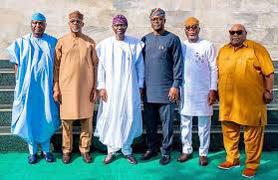December 29, 2024
By Ayinde Adeleke
The Yoruba conservatives have expressed deep concern over the low number of indigenous Yoruba women serving as First Ladies in the South West region.
This trend, observed in 2023 election has raised a heated debate about the importance of cultural representation and the role of women in Yoruba society.
According to the conservatives, Yoruba women were not First Ladies in 50% of Yorubaland, specifically in Ondo, Osun, and Oyo states.
This statistic is alarming, considering the significant contributions Yoruba women have made to the region’s cultural, economic, and social development.
Furthermore, the conservatives noted that an additional 30% of Yorubaland, totaling 80%, were at risk of coming under the direct influence of non-Yoruba women, particularly Igbo women.
This trend was evident in Ondo, Osun, Lagos, and Oyo states, where Igbo women were contenders for the position of First Lady.
The situation in Oyo state was particularly concerning, as the last time a Yoruba woman held the position of First Lady was in 2011, during the tenure of Governor Akala.
The conservatives pointed out that the wives of recent Governors and a Gubernatorial candidate, including First Lady Ajimobi (Lebanese mixed), First Lady Makinde (Ijaw), and the late wife of Teslim Folarin (Igbo), did not have Yoruba heritage.
The conservatives emphasized the importance of knowing the ethnic background of a politician’s spouse and mother before voting for them.
They argued that this information is crucial in ensuring that Yoruba interests are represented and that the cultural heritage of the region is preserved.
According to the conservatives, the low representation of Yoruba women as First Ladies is a symptom of a broader issue – the erosion of Yoruba cultural values and traditions.
They argued that the increasing influence of non-Yoruba women in the region’s politics is a threat to the cultural identity of the Yoruba people.
The conservatives called on Yoruba politicians to prioritize the interests of their people and to ensure that their spouses and family members share their cultural heritage.
They also urged the Yoruba community to be more mindful of the cultural implications of their voting decisions.
As the debate continues, one thing is clear – the Yoruba conservatives will not relent in their efforts to promote and preserve the cultural heritage of their people.






